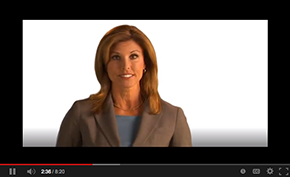But one Precept of the Code requires you to act based on another actuary’s behavior. Under Precept 13, if you think another actuary may have violated the Code of Professional Conduct, you are required to act. Let’s take a look at what Precept 13 says:
An Actuary with knowledge of an apparent, unresolved, material violation of the Code by another Actuary should consider discussing the situation with the other Actuary and attempt to resolve the apparent violation. If such discussion is not attempted or is not successful, the Actuary shall disclose such violation to the appropriate counseling and discipline body of the profession, except where the disclosure would be contrary to Law or would divulge Confidential Information.
What does “apparent, unresolved, material violation” mean? “Apparent” is used because an actuary may not have all the information to confirm that a violation has taken place. “Unresolved” means that the apparent violation has not been addressed or corrected in any way. The third condition is “material,” which Annotation 13-1 explains as follows:
A violation of the Code is deemed to be material if it is important or affects the outcome of a situation, as opposed to a violation that is trivial, does not affect an outcome, or is one merely of form.
When you believe that there may be an apparent, unresolved, material violation of the Code, the first step is to consider a discussion with the other actuary, unless “either Actuary is prohibited by Law from doing so or is acting in an adversarial environment involving the other Actuary,” as noted in Annotation 13-2.
Although this conversation can be awkward, it need not always be confrontational, especially if you approach it with an inquisitive, rather than accusatory, attitude. During such a conversation, one of several things may happen: You may discover that the actuary is able to explain their work to your satisfaction and that there was no violation. Or the actuary may realize they made a mistake and take steps to correct it (and even better, take steps to prevent it happening in the future). In many such cases, you may consider the situation resolved, and you would not need to report it to the Actuarial Board for Counseling and Discipline (ABCD).
However, less desirable outcomes may also occur—the actuary may refuse to discuss the situation, or if they agree to a discussion, they may not be able to explain their work satisfactorily or refuse to admit and correct mistakes. In such cases, or if you did not attempt a conversation with the other actuary, you have an obligation to report the apparent violation to the ABCD, unless disclosing it would break the law or divulge confidential information.
If you are wondering whether to report an apparent violation or have questions about the process, you can always contact the ABCD with a request for guidance (RFG). During an RFG, the ABCD member would discuss relevant portions of the Code, as well as actions you could consider taking to address the situation. The conversation would remain confidential, and how to proceed would be your decision. Another helpful resource is the Academy’s professionalism discussion paper on Precept 13, which wraps up with these concluding thoughts:
In the end, a profession is only as good as its members. If an actuary—whether from reluctance to confront a colleague or employer, fear of legal repercussion, or some other reason—fails to report potential violations of the Code to the ABCD, he or she may also be violating Precept 13.
More important, the Actuary may be allowing substandard actuarial work to stand unopposed. In a worst-case scenario, companies or governments relying on such substandard work, as well as their customers, employees, and citizens, would end up facing the consequences of the actuarial profession’s failure to adhere to all of the Precepts of the Code. As such, reporting apparent, material, unresolved violations of the Code is not only required under Precept 13 of the Code of Professional Conduct; it’s the right thing to do.




